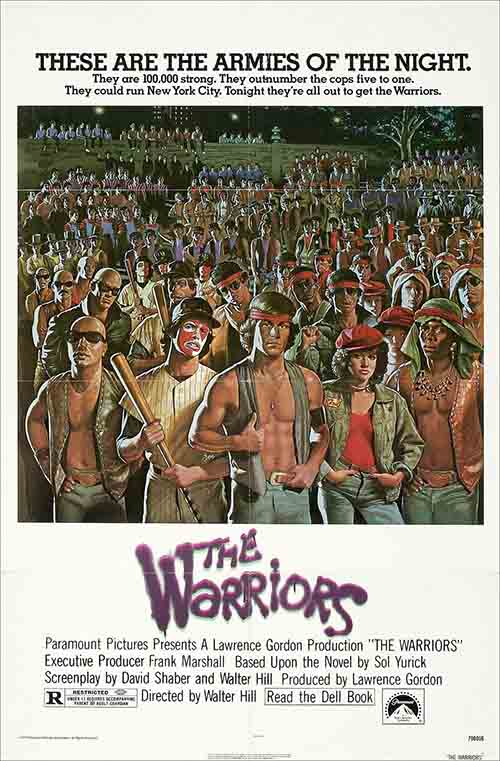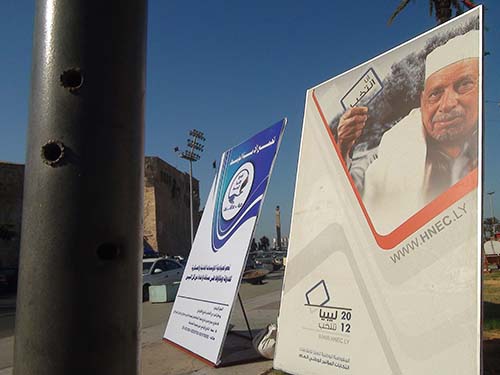Report on My June 2012 Return to Libya
Spoiler alert – Libya is nothing like this:

Contrary to media reports, Libya doesn’t look anything like this.
In June, 2012 I returned to Libya for the first time since the war ended. The primary purpose of my trip was meeting with Libyan government officials and mental health professionals in Libya on behalf of After The Revolution, the non-governmental organization (NGO) I created in 2012 to provide PTSD and other combat-related mental health training for Libyan mental health professionals and counselors who treat Libya war veterans. In addition, I was taking photos and video for Rawporter.com, an innovative startup company who I have signed an endorsement deal with because their services show considerable potential for helping the Arab Spring.
And of course, I also wanted to see my fellow veterans from the war with whom I had fought for months to overthrow the Gaddafi regime and bring freedom to Libya.
Almost as much as I wanted to see my friends and comrades, I also wanted to see for myself how Libya, which so many of us had sacrificed so much for, was faring as a post-revolutionary country. The media had been portraying Libya as unstable, dangerous, and even precariously close to another civil war. Opponents of intervention in Syria were using these reports to strengthen their arguments against applying the Libya model to Syria. A few days after my arrival in Libya I was approached by a friend of mine who works for one of the most prominent and recognizable international NGOs in the world, who, in the safety of the opulent Blue Radisson Hotel cafe, told me how bad the security situation was in Tripoli, and how she would soon file a report back to her NGO to that effect.
Yet my Libyan friends were not complaining, and they live there. They were happy to be free, optimistic about their future, and going about their lives as usual.
I did not come to Libya on assignment to cover a specific story. I wasn’t under pressure by an editor to produce an eye-catching headline or confirm the well-established media narrative on the security situation in Libya. I didn’t stay in hotels, I stayed with Libyan friends, as always. Other than getting one coffee with some Libyan friends, I didn’t spend time trolling around the café at the swanky Radisson Blue hotel with other NGO executives and journalists, transitional government officials, or foreign businessmen. I didn’t mingle with men in suits and I didn’t travel with private security or any entourage other than my friends.
My time was spent on the streets and in the houkha cafes, talking about life and Libya with a wide variety of characters – former rebel fighters, revolutionary musicians, Tawerghans and Misratis, Islamists, the wealthy and poor, dual-nationals, both a Human Rights Watch employee monitoring torture and an interrogator who admits to torturing prisoners and defends it as necessary, and occasionally a few of my journalist friends who happened to be in Libya covering stories or holding photo exhibitions.
So, what is really going on in Libya?
Security
The security situation in Libya is, contrary to the false impression left by sensationalized headlines of incidents here and there, mostly good. I left my guns in storage the entire time and routinely stayed out in Tripoli and Benghazi as late as 1 or 2am. Without my combat gear, thick beard, and suntan I didn’t look half as Libyan as I did during the war and now clearly stood out as a foreigner. Furthermore, I was occasionally recognized by Libyans as the American who had fought with the rebels during the war.
Yet, I had no concerns for my security. I did not witness any violence, wasn’t so much as inconvenienced by a militia checkpoint, and felt safer walking the streets at night than I do in my own hometown of Baltimore, Maryland.
There are not roaming gangs of trigger-happy militia everywhere. There are not routine gunfights in the streets of Tripoli. There are not widespread kidnappings, terrorist bombings, criminal activity, or any of the other post-conflict mess that characterized places like Iraq and Afghanistan in recent years (as I can attest to, having travelled extensively throughout both Iraq and Afghanistan. It was, in fact, a little boring at times.
Democracy
Libyans remain optimistic about their future, and although they complain about politics, the fact that they can complain at all means that democracy is alive and well in Libya. People no longer walk around looking over their shoulder, but rather they feel comfortable enough to voice their complaints openly and engage in political protests without fear of reprisal.
Some are dissatisfied with the elections, complaining that they know little about the candidates and that most people are just going to vote for family names or tribes. One Libyan told me “thousands of people didn’t die in this war so I could vote for my cousin.” And he’s right – that isn’t what I fought for either. But as I argued in my Huffington Post article Why Islamists Winning Elections Is Good for Democracy and the War on Terrorism, whoever wins these first elections (and they will mostly likely be moderates, not Islamists in the case of Libya) will fail to meet voters’ expectations and be voted out of office in a subsequent election. Some of my good friends in Libya who have political ambitions and actually served in the war and deserve to win, are playing it smart and watching the power-hungry first election candidates walk into the fire of post-revolutionary disillusionment.
Generally speaking, however, Libyans are excited about voting in the election and being the masters of their own destiny for the first time.
Federalism
Federalism is gaining popularity, not only in the East, but in the West as well. I believe that some variation of federalism will be a part of Libya’s future, though to what extent remains to be seen. The allocation of seats in the General National Congress, purportedly by population, greatly favors the West and has left many in the East feeling that they will effectively have little influence in the new government and remain under the domination of Tripoli. There is talk in Benghazi of another war if Eastern federalist ambitions are not respected by the West.
The federalists have made a major tactical error in choosing to boycott the elections rather than run and campaign for federalist candidates. Turnout in the East will be high enough to make a boycott meaningless.
Islamists
The Islamists are running in the elections, and they will win some seats in the General National Congress. This result should not be feared by the West – even some of the Islamists recognize and appreciate the US and Europe’s help in overthrowing the Gaddafi regime (I know because I’ve spoken with some of them), and most are pragmatic and calculating enough to appreciate the need to have good relations with the West in the future.
Human Rights
As a former prisoner of war I am especially disturbed when I hear of prisoners being tortured in Libya. I am also in the somewhat unique position of being both friends with an official tasked with reporting on torture in Libya for Human Rights Watch and a Libyan who has overseen or engaged in the torture of prisoners himself during interrogations and believes that it is necessary for the security of the country.
There is no excuse for torture. That moral and academic argument aside, torture does and will occur in Libya for the foreseeable future, and much to the chagrin of those of us opposed to it, torture has undoubtedly contributed to the security and stability of the country. There is no counter-revolution and no significant terrorism or other activity by Gaddafi loyalists. Why? Because anyone who was presumed to be a threat is in prison and when tortured they gave up other people, plots, and the location of weapons caches. I know this for a fact from my friend who has participated in extracting this information from prisoners, and even though he and I had heated arguments about torture, I cannot deny that it has produced valuable intelligence that has helped to snuff out any potential of a counter-revolution.
Despite my belief that torture should be forbidden under virtually all circumstances, the fact that it is producing results in Libya, that it is ingrained into the psyche and life experience of Libyans after 42 years of Gaddafi, and that militias who engage in torture generally could care less what Human Rights Watch or any other outsider says, torture and other human rights violations will persist in Libya for some time.
Tribal Conflict
During my time in Tripoli there was fierce fighting between Zintan and the Mashashia tribe in Western Libya. There was even a rumor going around Tripoli that chemical weapons had been used, perhaps white phosphorous, perhaps mustard gas – neither has ever been confirmed. Additionally, the Toubou and Zwai tribes have been shooting each other in Kufra for months.
The root causes of these conflicts pre-date the revolution and many of them cannot be resolved. Eventually the tribes will reach an agreement among themselves and a fragile peace will be restored in these areas. These isolated conflicts are not a substantial threat to the stability and security of Libya as a nation.
That is the truth about Libya. Tripoli doesn’t look like a scene from the film The Warriors and Al Qaeda hasn’t taken over the East of the country. The Muslim Brotherhood won’t do nearly as well in the elections as uninformed commentators and analysts in the West fear. And Libya isn’t going to fracture into fiefdoms and city-states.
Most importantly, Libya is a success story of historical proportions and should be viewed as the most compelling argument for international intervention in Syria to ensure that next year Syrians cast their votes in a free, democratic country also.

Photo I took at Martyrs’ Square in Tripoli, Libya in June, 2012 of a High National Election Commission poster, with a signpost riddled with bulletholes in the foreground. These elections came at a great cost in lives and I wish Libya the best as Libyans take the next step in achieving democracy.
